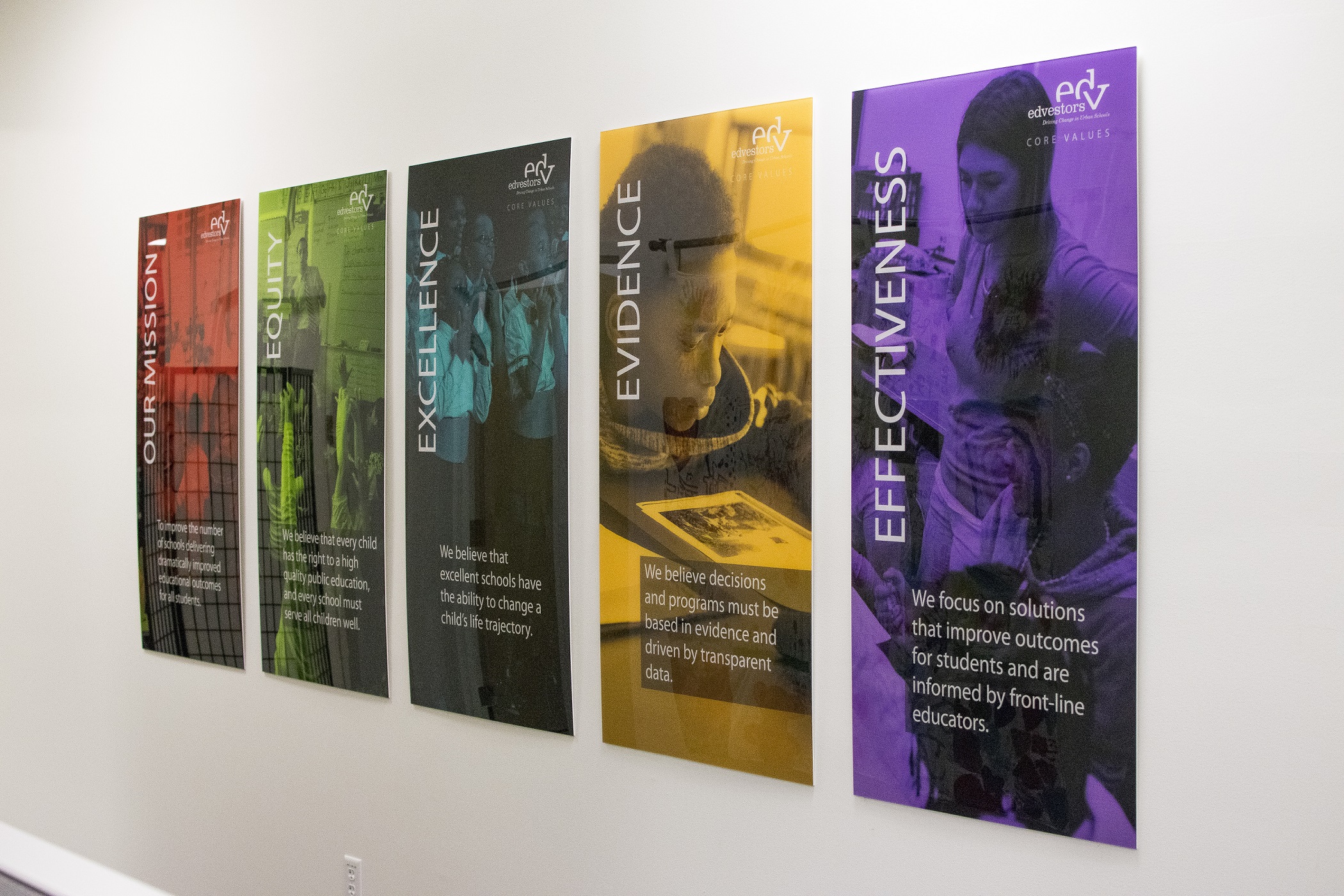Research & Insights / Building Racial Equity into Grantmaking
Building Racial Equity into Grantmaking

Equity is at the core of our work at EdVestors and essential to our mission to: Advance equitable, meaningful education that prepares every Boston student to activate their power and shape their future.
Over the last year, EdVestors’ staff and board engaged in a remote Strategic Planning process to build a path for the future of our work.
Through our many conversations around our core values, strategic goals and strategies, equity rose to the top. Our first strategic goal in our new five year plan is Explicit about Equity: Equity is explicitly at the core of our decision-making and actions in pursuit of every young person in Boston having access to meaningful education.
Key strategies toward this goal include:
- Commit explicit resources toward our internal and external commitments to equity
- Articulate and share our equity commitments in our partnerships and to our broader audiences
- Make decisions with the voices, interests, and needs of those most impacted by our work at the center
- Continuously refine and evolve our goals, approach, and commitments related to equity
With our renewed and sharper focus on equity, we began pushing forward on actionable steps, particularly around racial equity. Adapting resources from Center for Assessment and Policy Development, Race Forward/Center for Social Inclusion, and Equity in the Center, we define racial equity as a combination of:
- Equitable opportunities and outcomes for everyone regardless of race or ethnicity;
- Meaningful involvement of those most impacted by racial inequity and racism in decision making and implementation;
- Addressing root causes of inequities and systemic oppression, where we perpetuate them, and how we can work to eliminate them, leading to racial justice.
A first step for the organization was reimagining our strategic philanthropy by incorporating a more explicit racial equity lens into our grantmaking processes and goals related to several of our focus areas: BPS Arts Expansion, the School Solutions Seed Fund, and Zeroing in on Math.
With BPS Arts Expansion, we streamlined the application and modified criteria to explicitly state Culturally Responsive Instruction and Racial Equity as grantmaking criteria. Culturally Responsive Instruction aligns the proposed arts instruction with BPS' Culturally and Linguistically Sustaining Practices (CLSP), reflecting multiple backgrounds and traditions that affirm students' cultures and respond to their interests. The instruction can center on curriculum specifically curated for students with disabilities, English Learners, or students who have been otherwise marginalized educationally. Grants focused on Racial Equity will support projects that amplify Black, Indigenous, and People of Color (BIPOC) voices and narratives or entail student-driven projects that utilize the arts to advance anti-racism and racial justice.
The newly renamed Racial Equity Seed Fund is the reimagined School Solutions Seed Fund, focusing on tackling racial injustices within education structures. In Boston’s current education system, students of color, particularly Black and Latinx students, are disproportionately impacted by gaps in opportunity and outcomes. Through stakeholder conversations, partnership development, and desire to enact change, the Racial Equity Seed Fund is building an action-based learning community to implement, test, and scale solutions developed by those most impacted in schools to advance racial equity. The pillars of the learning community are to illuminate and be responsive to students’ individual backgrounds, communities, and strengths, while addressing the root causes of systemic oppression in our schools.
For Zeroing in on Math (ZioM), the newly released Request For Proposals seeks to create a cohort of schools that focus on increasing equitable enrollment and student success in math so that all students, especially Black and Latinx students, receive a meaningful math education that is affirming, relevant, and prepares them for postsecondary opportunities. Selected schools can focus on equitable math pathways, culturally responsive instruction and pedagogy, or math cultures as one of their goals.
Through our grantmaking, we hope to learn alongside our partners and communities who inspire us to drive toward racial equity and justice. There is much to do in the work ahead but we look forward to the learning we can do with peers and partners.
Derek Lin was the Manager of Communications and Programs at EdVestors.



